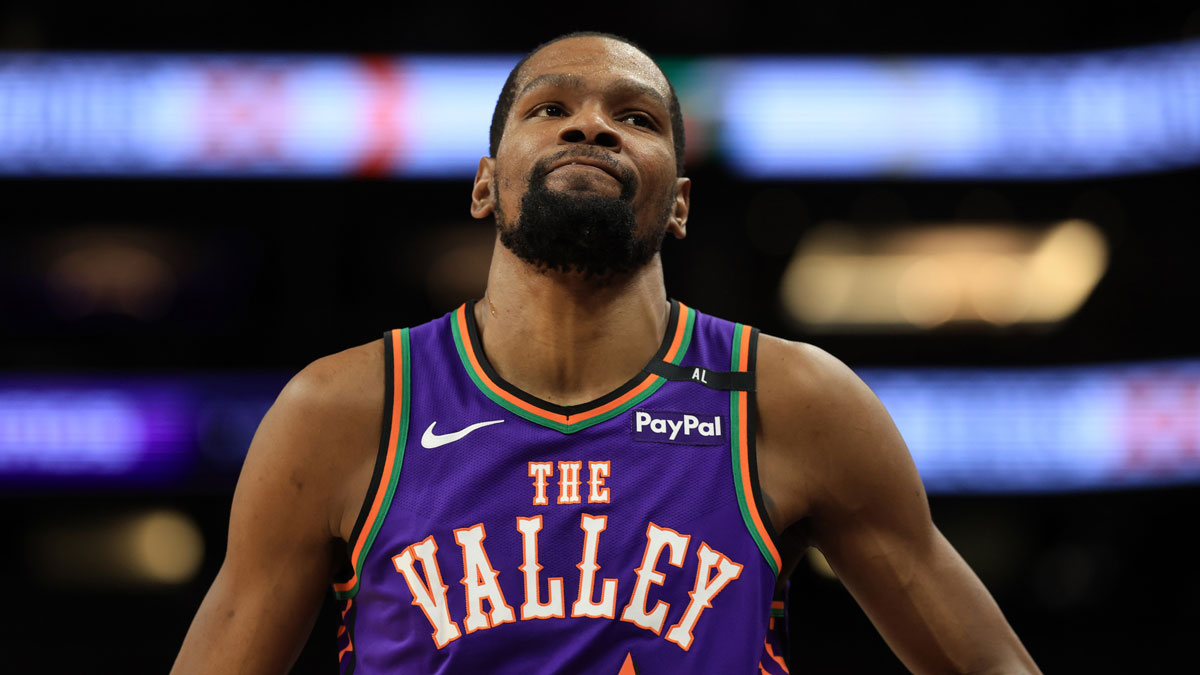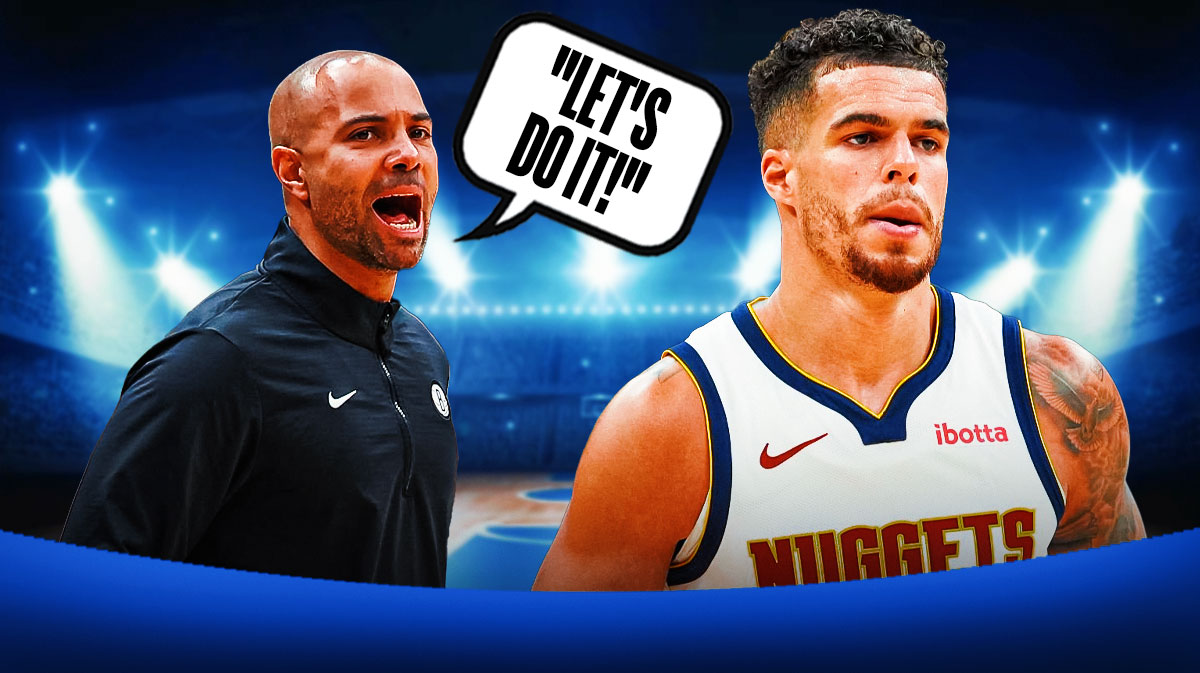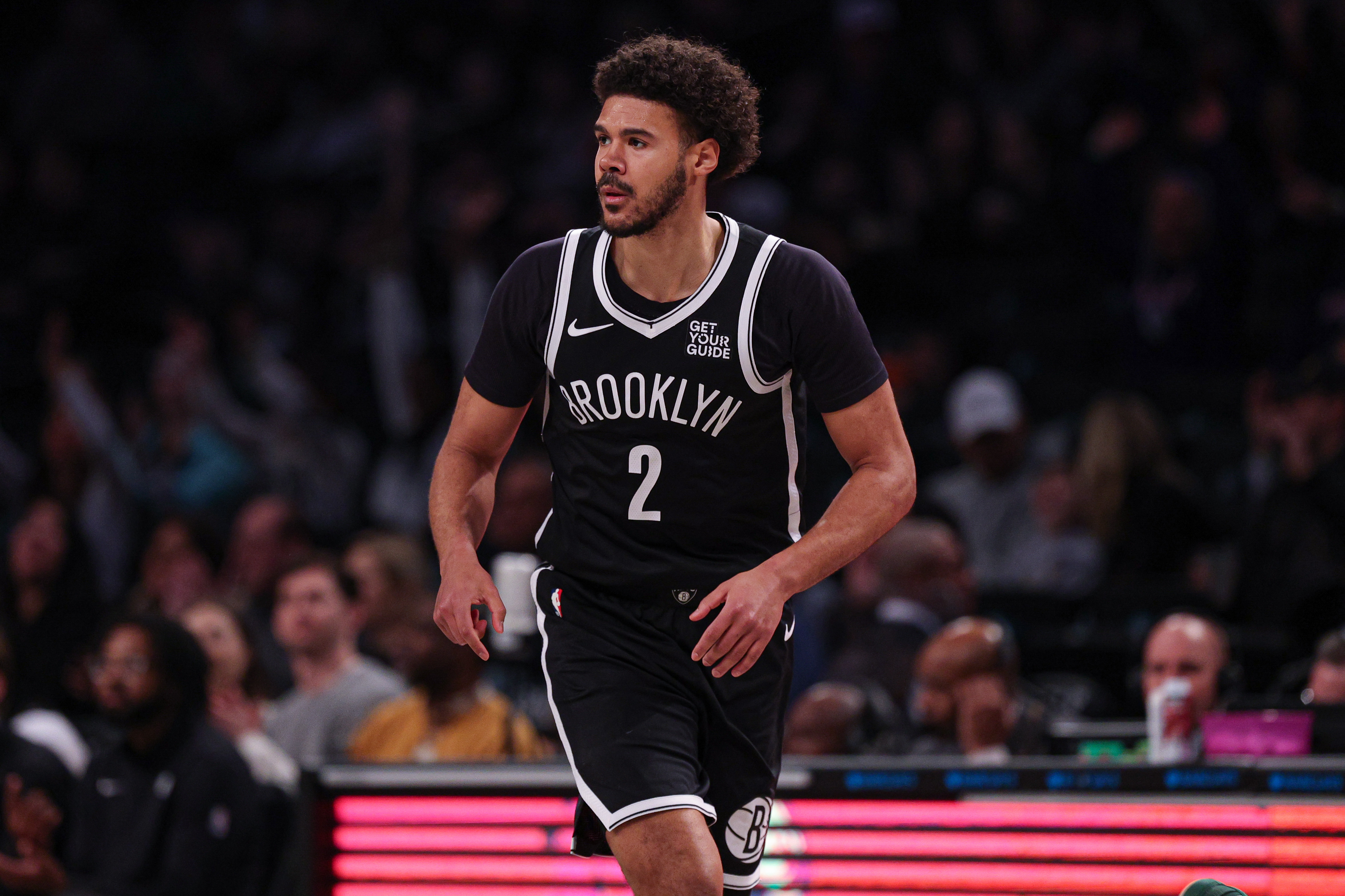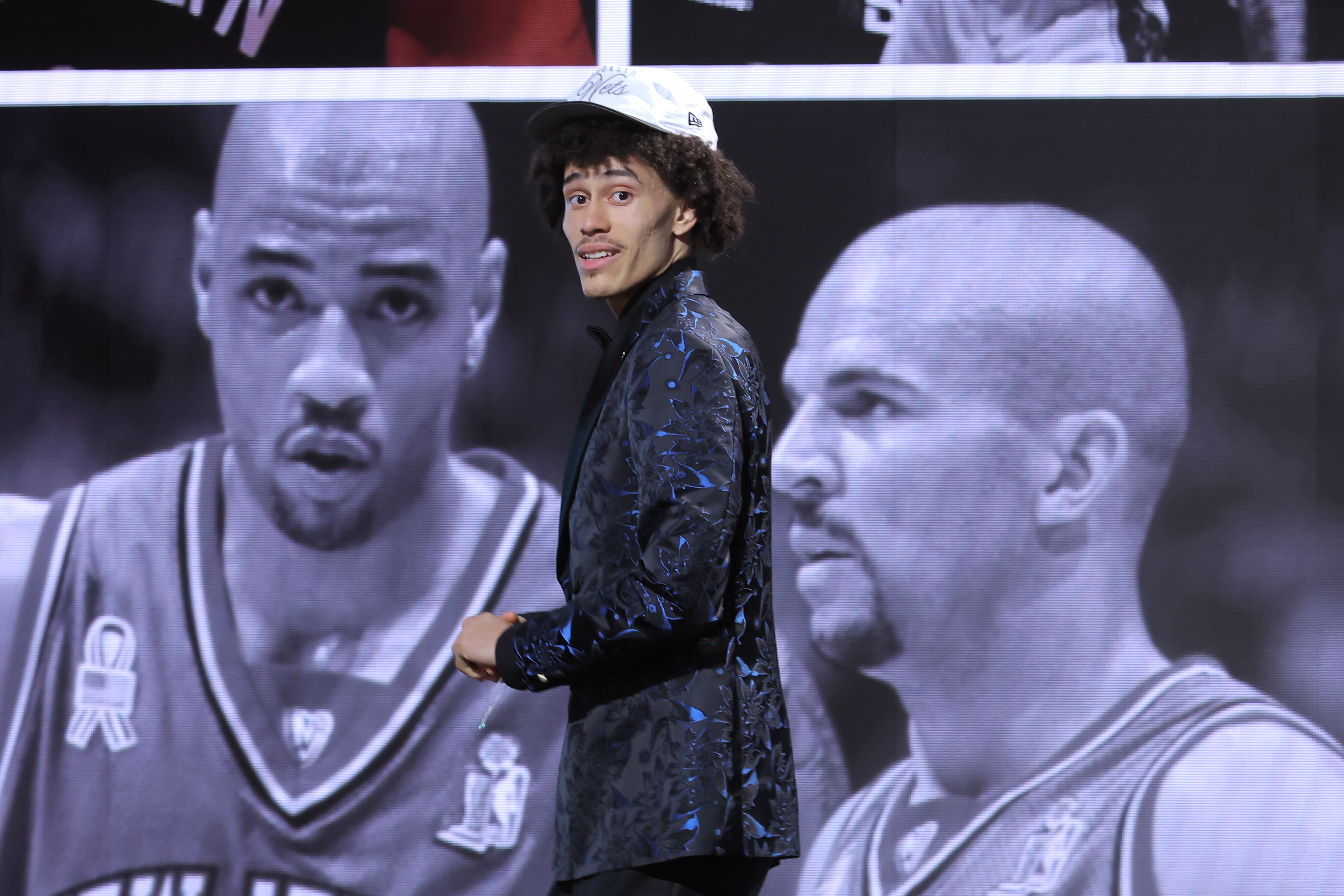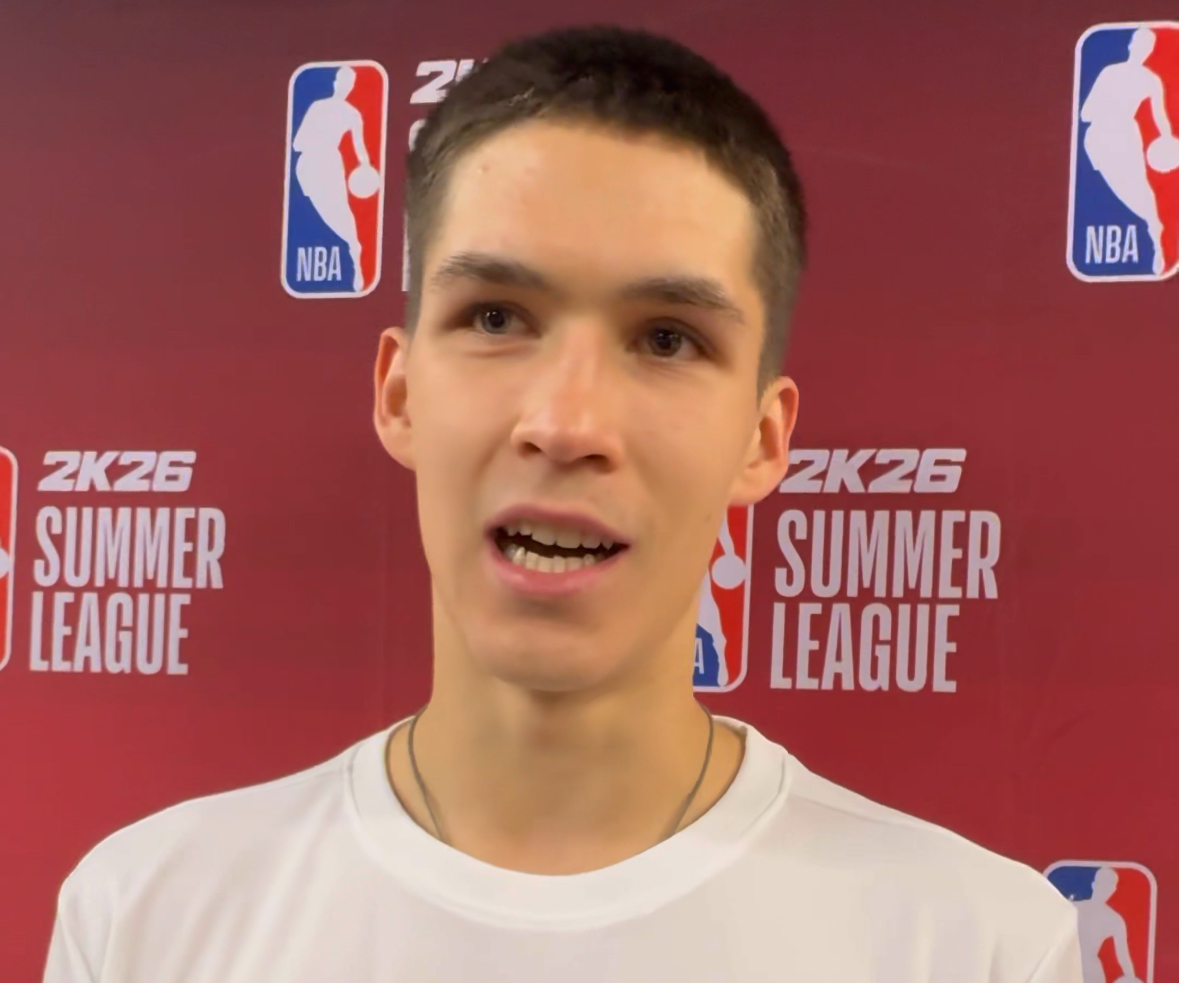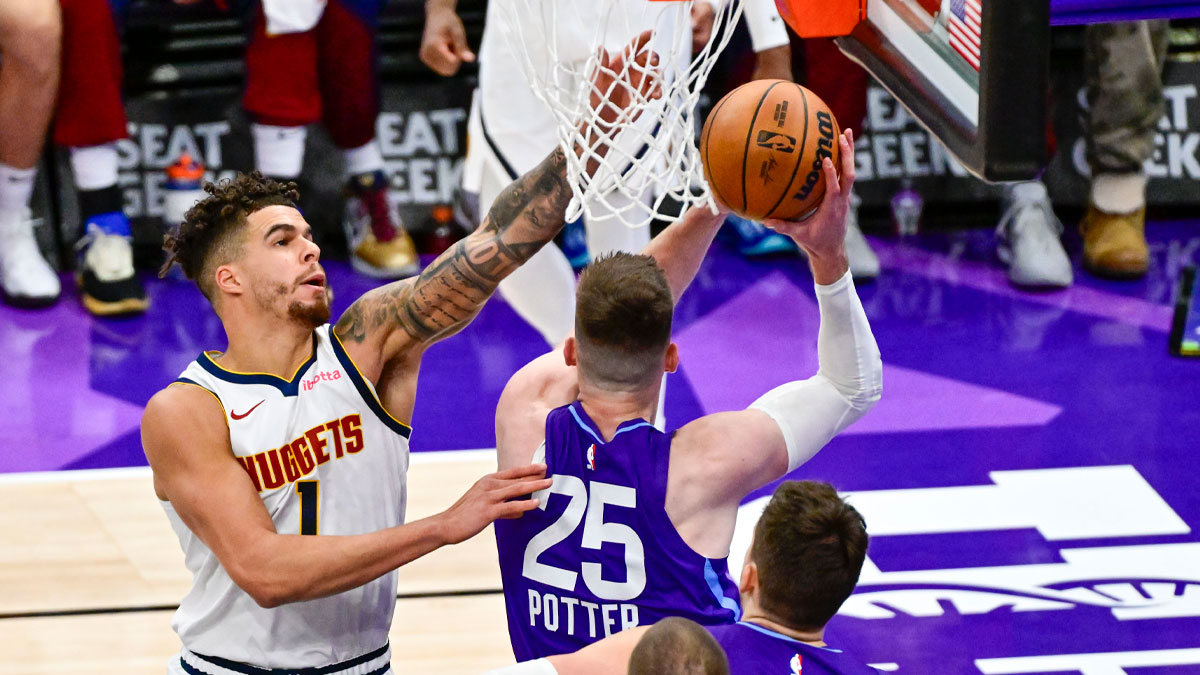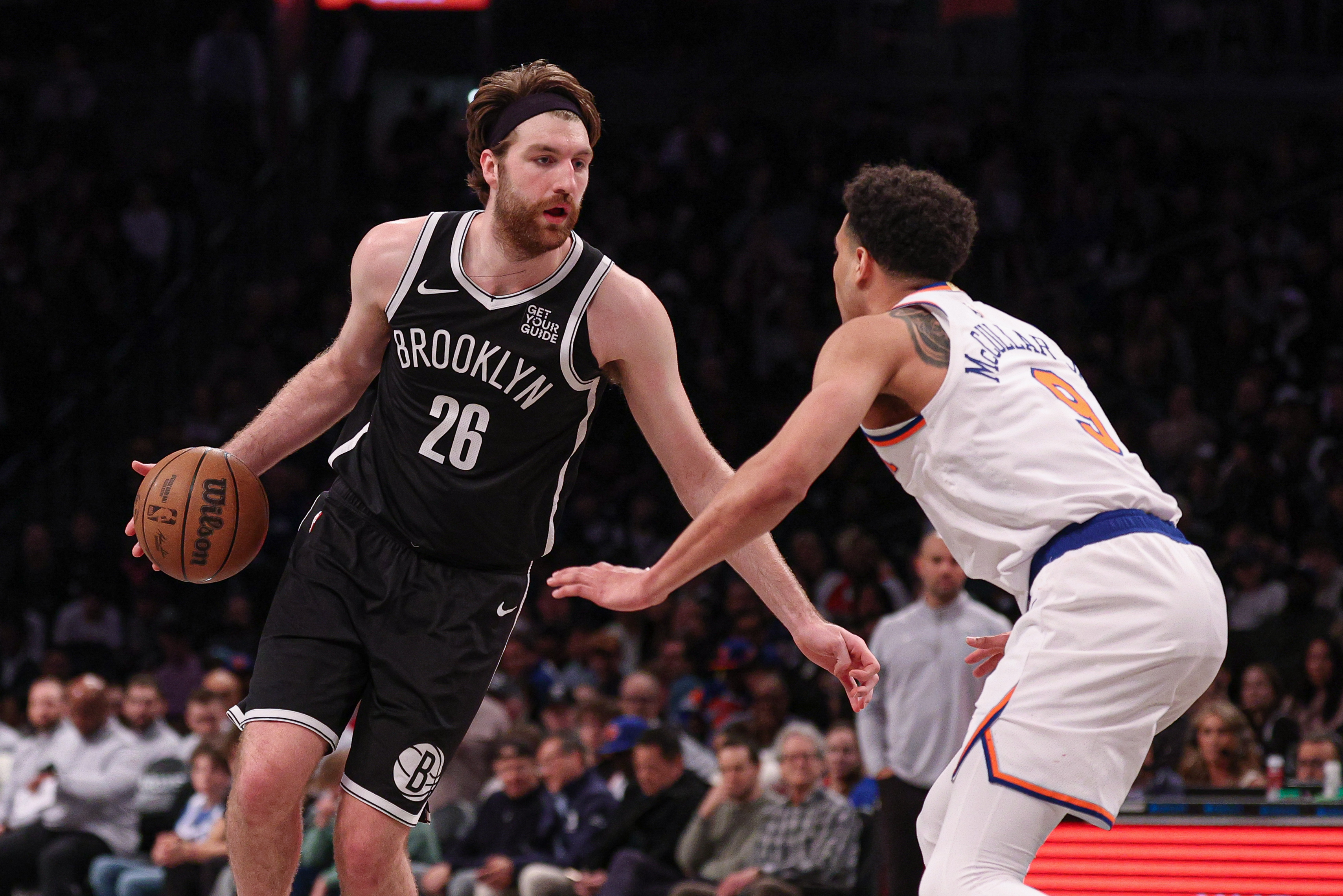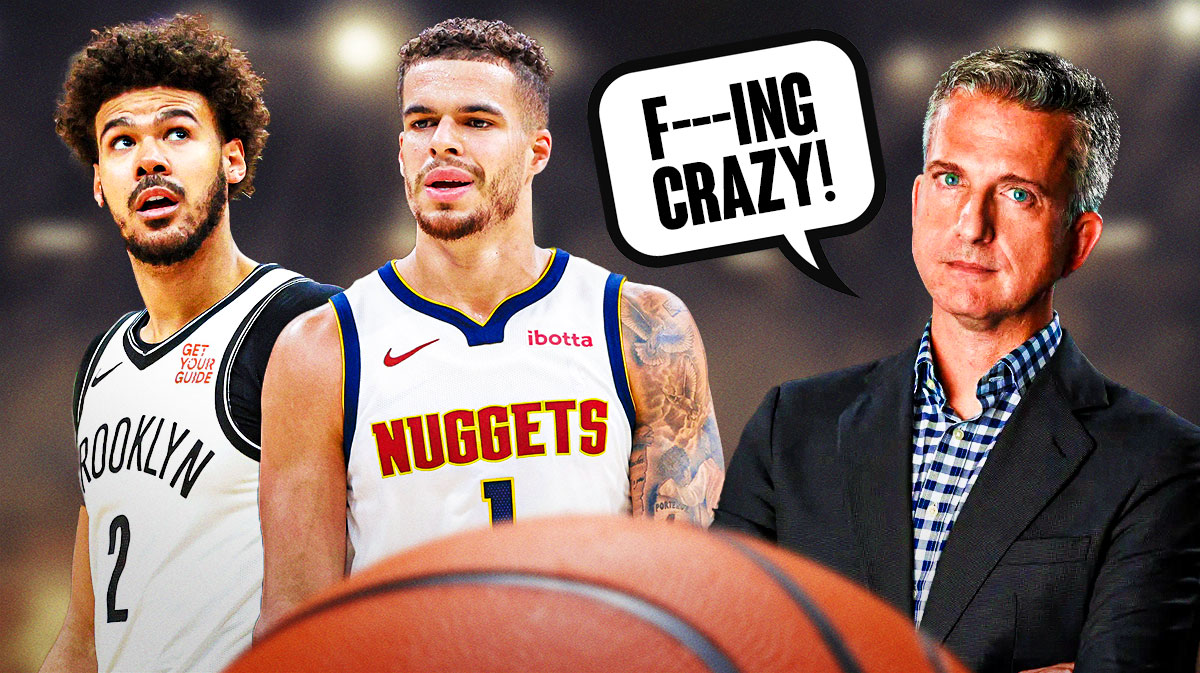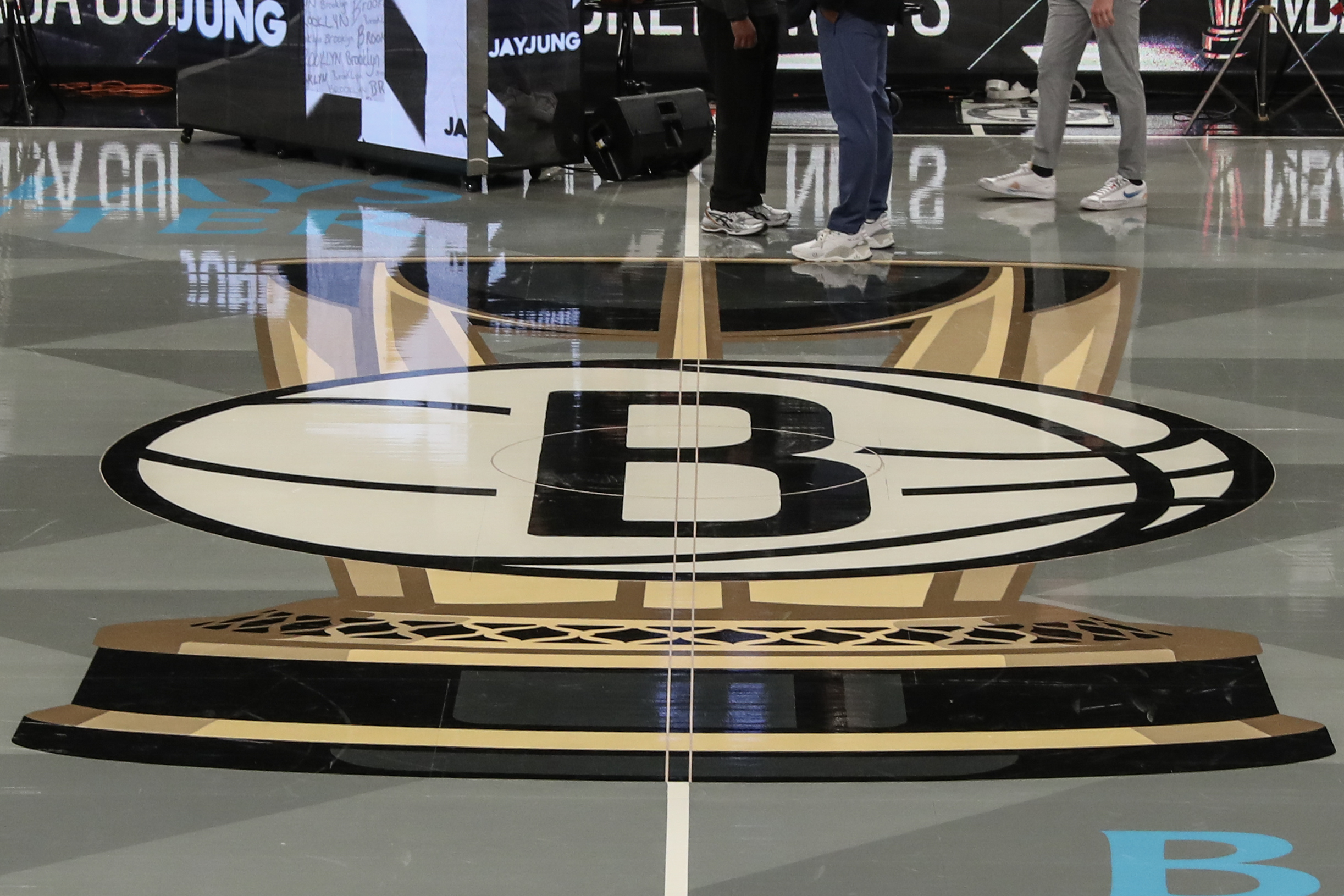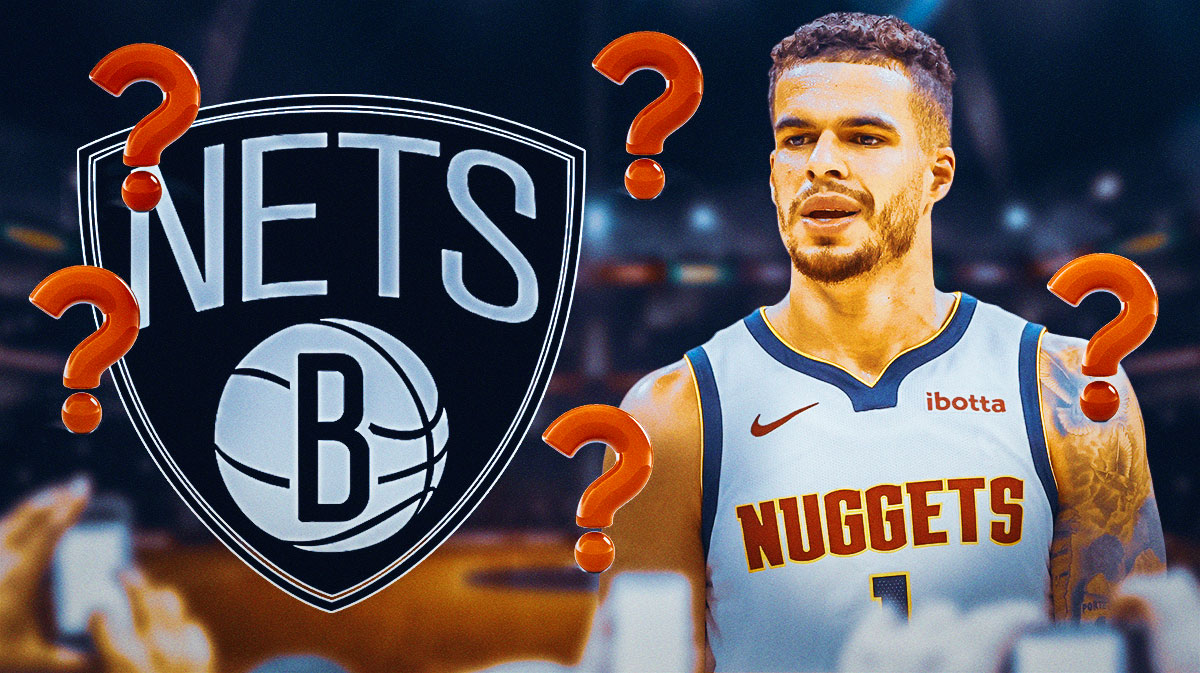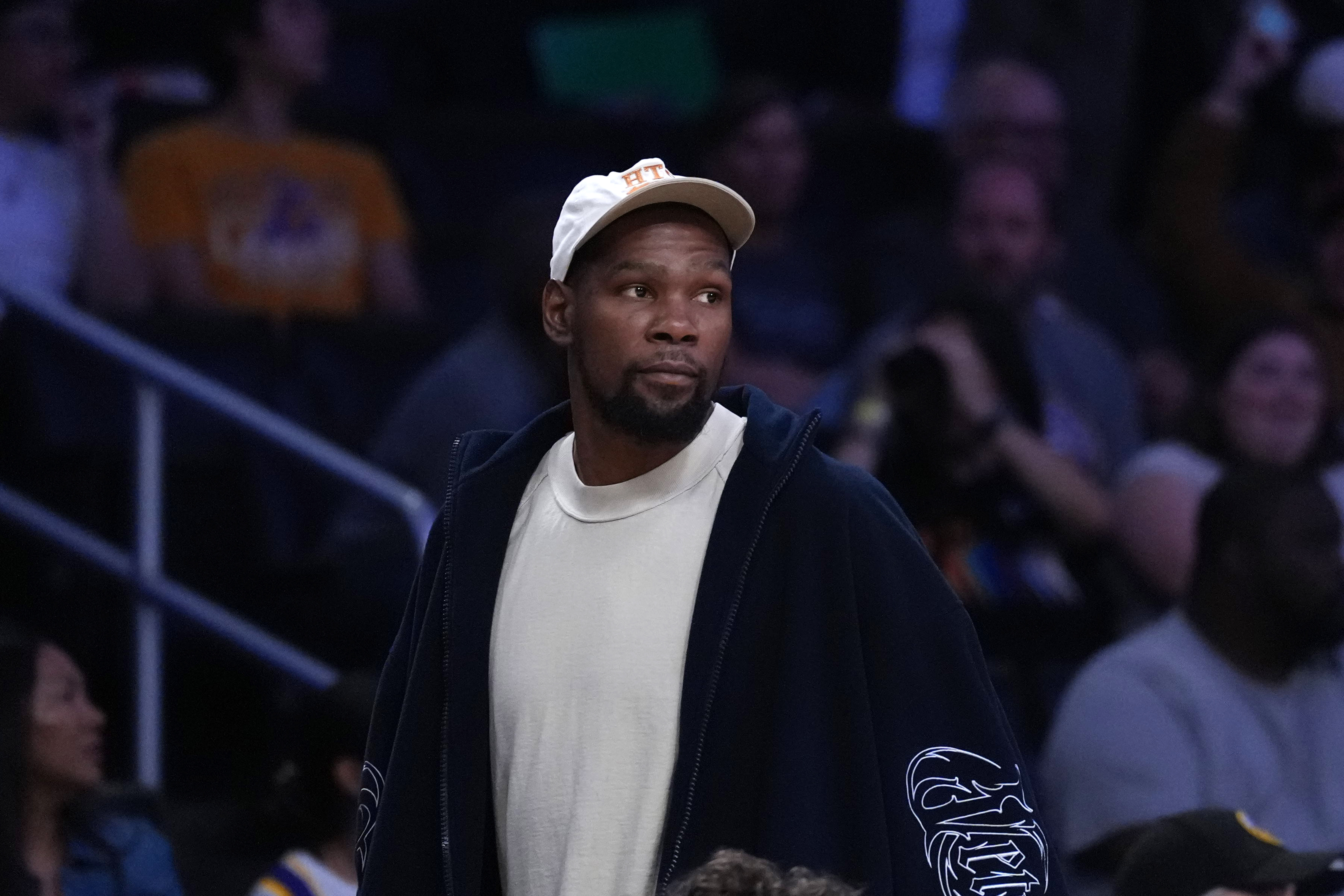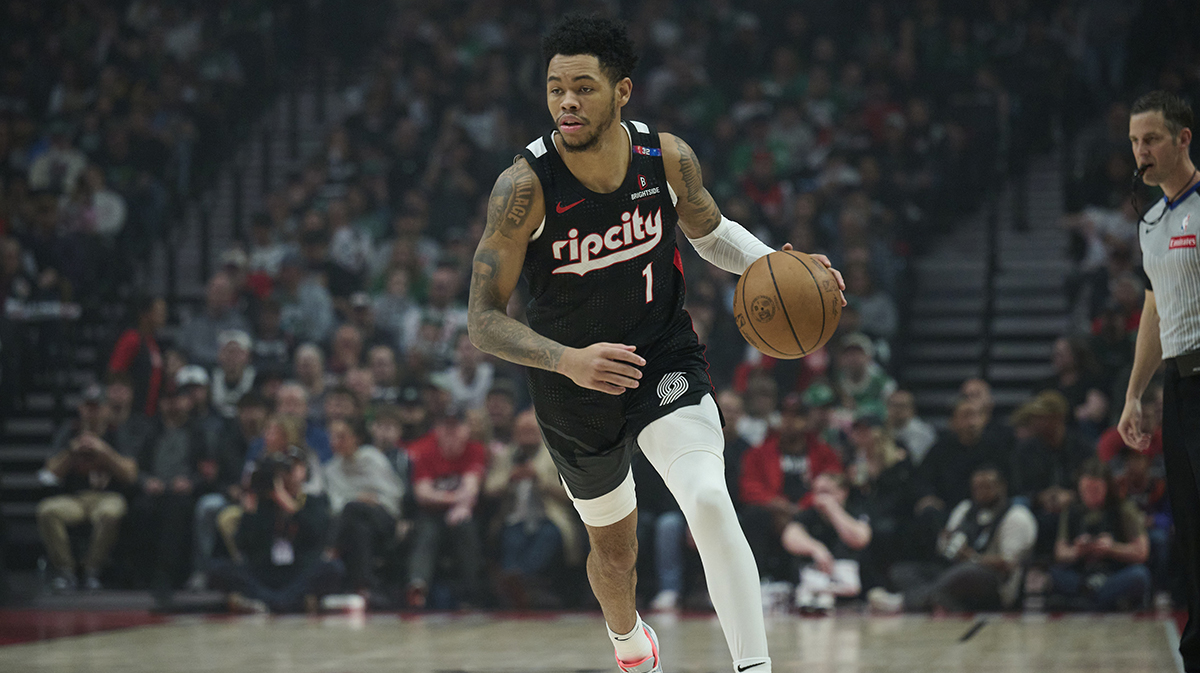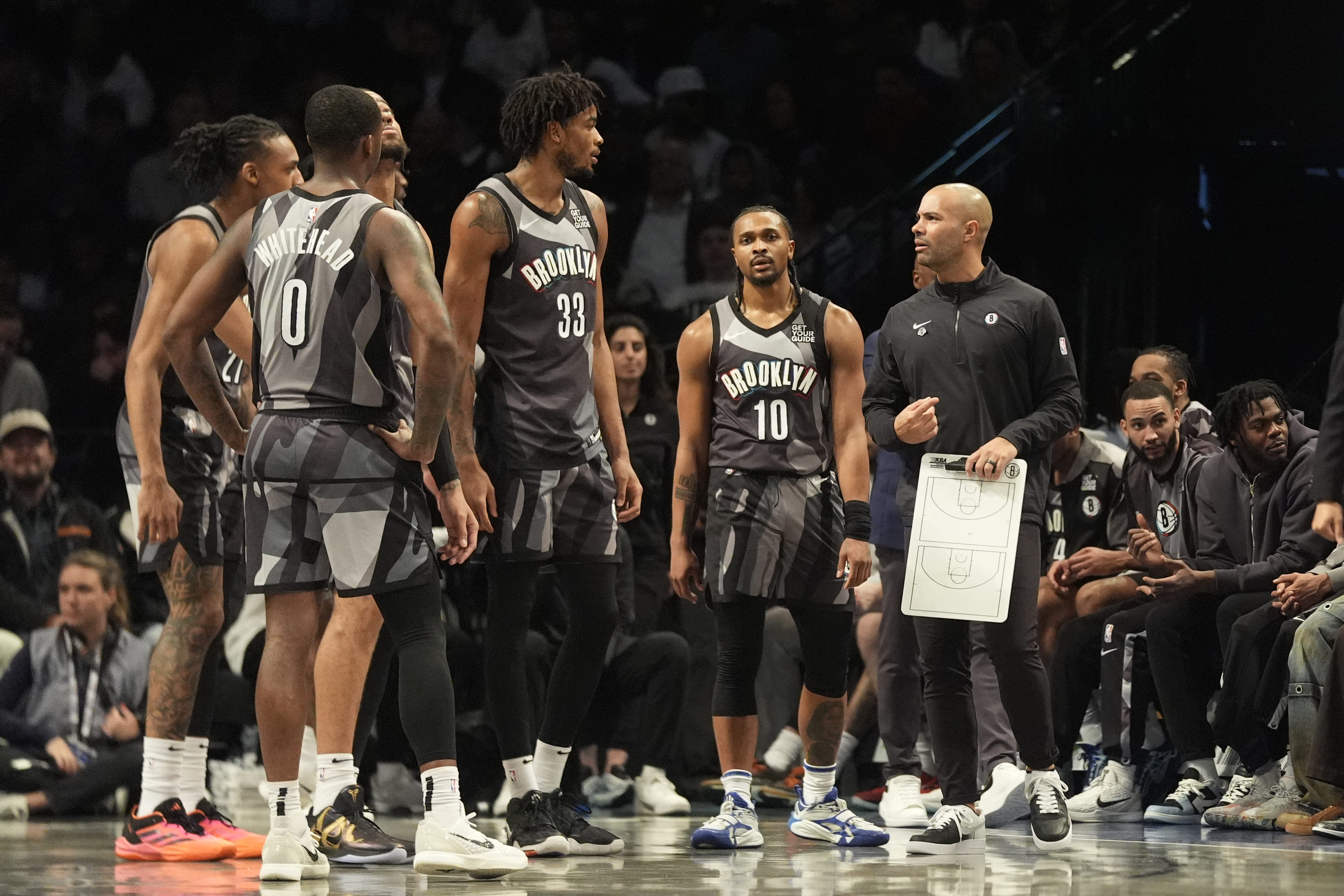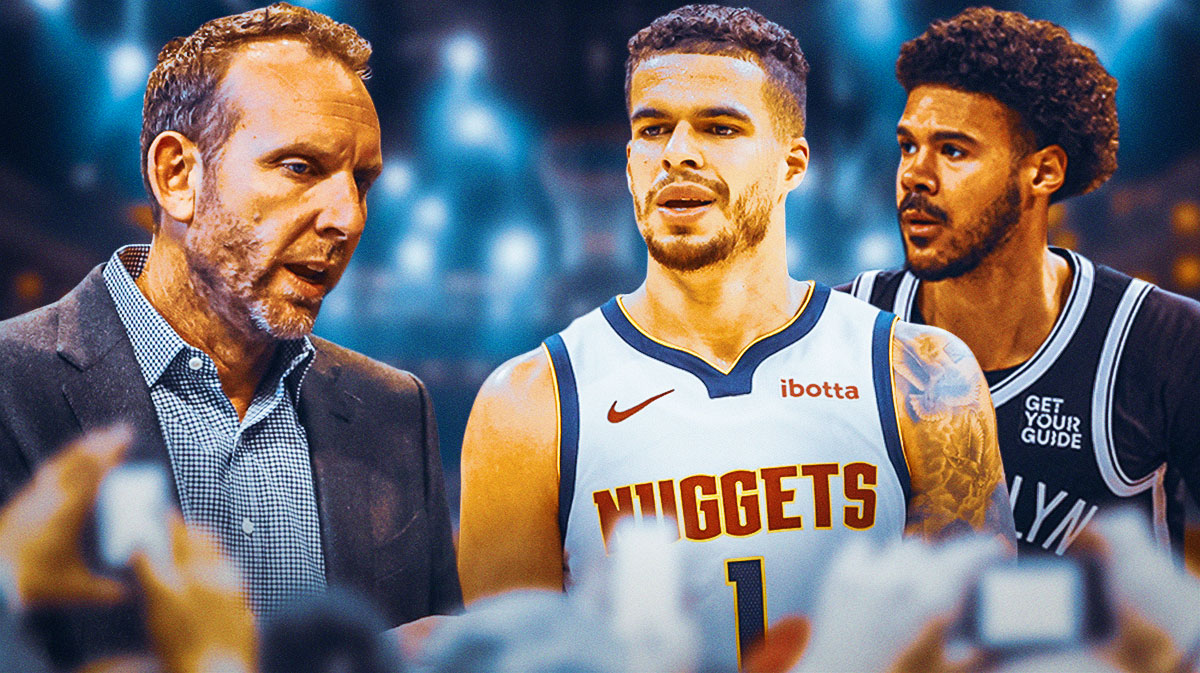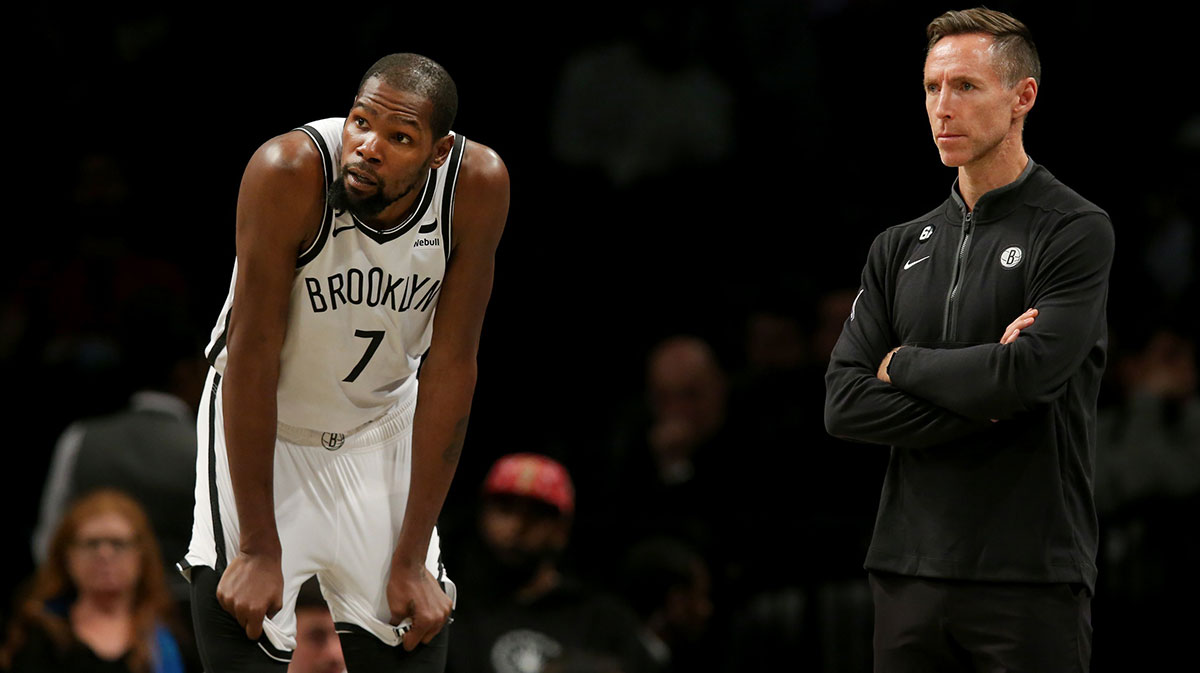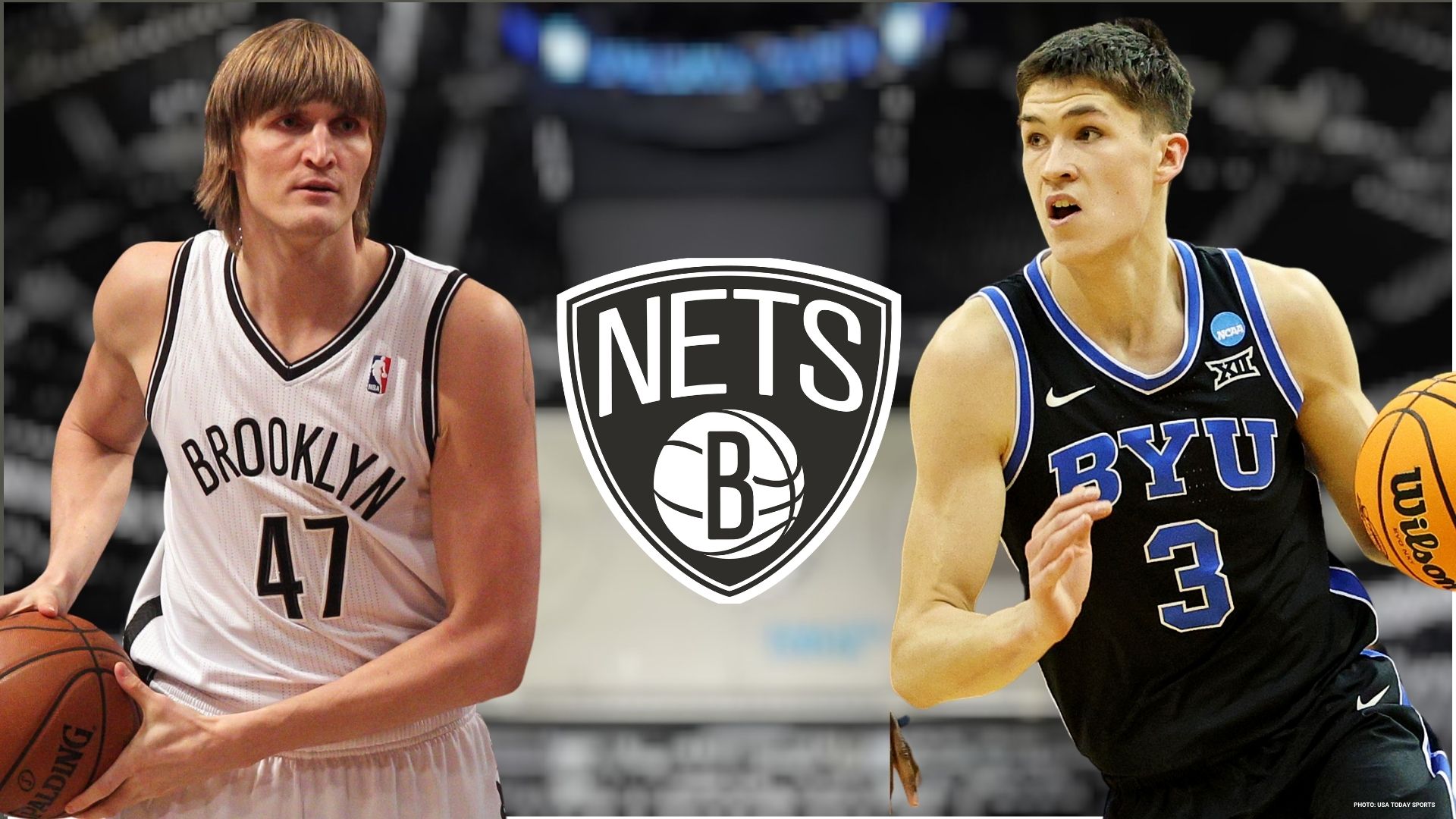Let's be clear: the Brooklyn Nets are highly unlikely to pursue Kyrie Irving trades this offseason. You don't exactly sign a star in his prime to a max contract just to trade him a year into the deal. With that said, the Nets don't need Irving.
Irving dropped 50 points in his Nets' debut. Albeit they lost to the Minnesota Timberwolves in overtime, it was a glimpse into the greatness that could be roaming the Barclays Center. Then the balloon was popped.
What began as a season of excitement and opportunity has become one of dismay and doubt for the Nets. Yes, they're still the seventh seed in the Eastern Conference — which is merely them benefiting from a top-heavy conference — but was being 26-31 the expectation going into this season? What about Irving becoming a talking point for all the wrong reasons?
Irving has a well-documented injury history; this season has highlighted that detriment, as Irving has suffered hamstring, knee, and shoulder injuries that have forced him to miss extended time.
Last week Nets general manager Sean Marks announced that Irving's shoulder injury will require surgery, and he'll consequently miss the rest of the 2019-20 season. He appeared in 20 games.
It's difficult to knock a player for injuries, rather you have to take that aspect of their resume into account when investing max-level money in them.
In those 20 games the Nets learned two things about Irving: he was a forced signing, and he hasn't changed.
This season has been underwhelming, but the Nets still have a talented, competitive roster with some compelling players. Spencer Dinwiddie, who has basically been Brooklyn's primary point guard, is having a breakout season where he has become a go-to scorer, averaging 20.8 points per game.
Caris LeVert is a savvy, well-rounded scorer who's a reliable defender; Jarrett Allen is the modern-day NBA center, as he rebounds, protects the rim, and finishes inside; Joe Harris is an outside sniper; Taurean Prince is a young, two-way player; DeAndre Jordan is still among the athletic big men in the sport; Garrett Temple is a streaky scorer.
With Irving the Nets are 8-12. Without Irving the Nets are 18-19. What're they missing with him sidelined?
Before the 2018-19 season Irving told fans at a Boston Celtics Fan Fest event that “if you guys will have me back, I plan on re-signing here,” as rumors swirled that he was leaving in free agency. Then he publicly criticized his teammates, and discouraging details emerged on his relationship with numerous players and head coach Brad Stevens. Irving proceeded to leave the Celtics for the Nets in the offseason.
He was supposedly amped to be with the Nets, as he grew up a fan of the team, and, well, it was his free agency. Then Irving talked about how they need more pieces to contend while mentioning players by name after a January loss to the Philadelphia 76ers.
Kyrie Irving was asked after tonight’s loss to Philly about this game against a top East opponent showing how much work the Nets still have to do in order to compete at the highest level while waiting for Kevin Durant to return. Here’s Irving’s answer: pic.twitter.com/NAqA4OvQk2
— Tim Bontemps (@TimBontemps) January 16, 2020
Who was excluded? Oh, Allen, a pillar in the paint for the Nets and one of the best centers in the NBA. Yep, Harris, one of the best shooters in the league, wasn't mentioned, either.
Irving's leadership has been continually questioned, but it seemed like happiness in Brooklyn might change the way he publicly portrays himself. It hasn't.
The irony is that the roster the Nets are running out on the floor perfectly complements Kevin Durant's game.
Dinwiddie and LeVert are capable second and third scoring options on a championship team; Harris stretches the floor; Allen clogs the paint; Prince is a versatile player. They wouldn't get in each others' way. Durant can be his prolific self, while the rest of the rotation plays to its strengths.
Durant has played under similar parameters before. In the 2013-14 season, the Oklahoma City Thunder were without Russell Westbrook for a large chunk of the regular season. In his absence, they severely leaned on Durant for scoring, but head coach Scott Brooks had a roster that complemented its star player.
Reggie Jackson was an attacking guard who could handle the rock; Serge Ibaka interchangeably played inside and out and was a defensive backbone; Derek Fisher stretched the floor; Kendrick Perkins and Nick Collison clogged the paint; Thabo Sefolosha was a defensive pest; Jeremy Lamb was an offensive spark plug off the bench. Everyone played to their strengths, and the Thunder didn't skip a beat.
Like Irving, Durant has nagging questions about his health — which is what happens when you miss an entire season due to a gruesome injury. They each have their fair share of cringeworthy public moments, but you don't see Durant going public about negative aspects of his team.
Irving is an incredible player, but that's never the story, and therein lies the problem. Will he be different with a change of scenery? How will he react to playing on a non-contender, which is what the Nets are without Durant?
Durant and Irving were perceived as a packaged deal. To get Durant you had to sign Irving, too. The latter was always the loose end of the deal, and that notion has been solidified this season.
Here's something that has been minimally pondered: how sure are we that Durant and Irving will play well together? They each have experience playing with a star player, but that player was part of the reason why they wanted to leave their team (Kevin Durant with Russell Westbrook and Kyrie Irving with LeBron James). Irving had issues with James, and he's going to be playing with a ball-dominant player in Durant.
Irving is the Nets' best point guard. But what's the safer, more predictable path: building around Durant and Irving or getting a roster of several good but not flashy players around Durant? Dinwiddie, LeVert, and Allen would be a phenomenal starting point. When healthy, Durant is one of the five best players in the NBA, and he lifts the performance of those around him.
Last season the Nets were 42-40; optimism was plentiful going into the offseason with a young core that had continuity. Then they signed Durant and Irving and moved on from their best player, D'Angelo Russell, to do so. This season they're on track to finish with a worse record with more talent even without Durant.
When healthy, Irving is better than Russell. At the same time, how much of an improvement is he from both a talent and continuity standpoint?
The Durant-Irving era could very well produce an NBA championship, but the Nets could also be in contention without Irving next season. They'd probably love to turn Irving into a different point guard or simply rid themselves of his salary.

